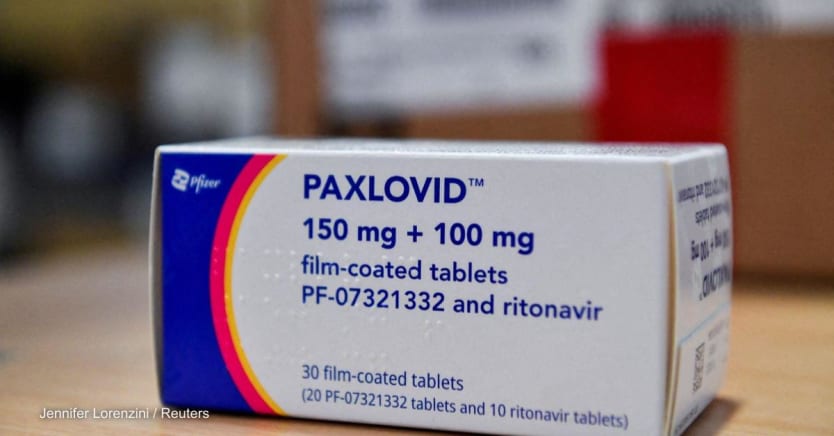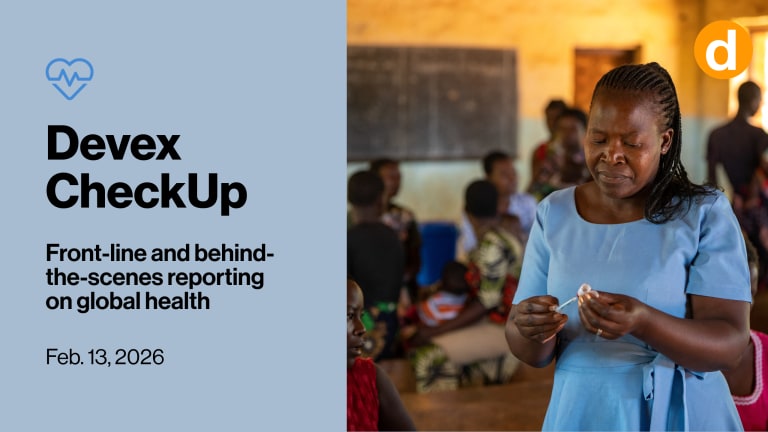
The World Health Organization has issued its first recommendation for the use of Pfizer’s antiviral drug Paxlovid for patients with mild and moderate COVID-19.
The drug is a combination of nirmatrelvir, which helps stop viral replication, and ritonavir, which boosts the effect of the nirmatrelvir. Paxlovid is taken orally for five days. WHO said it strongly recommends the drug for patients “with non-severe COVID-19 who are at highest risk of developing severe disease and hospitalization,” including those who are unvaccinated, older, or immunosuppressed. The agency called it the “best therapeutic choice for high-risk patients to date.”
This recommendation comes in the wake of two randomized controlled trials with over 3,000 patients that found an 85% reduction in the risk of hospitalization. The drug was not tested in children or pregnant or lactating women, and it has many potential adverse drug interactions.
“In an emergency setting, we really think that the transparency aspect [of drug pricing] becomes very, very critical.”
— Lisa Hedman, technical officer for access to medicines and health products, WHODespite its strong backing of the drug, WHO said it worries about accessibility.
A press release from the agency said that “availability, lack of price transparency in bilateral deals made by the producer, and the need for prompt and accurate testing before administering it, are turning this life-saving medicine into a major challenge for low- and middle-income countries.”
The drug is currently available in several high-, upper-middle-, and lower-middle-income nations under bilateral deals negotiated directly with Pfizer, said Lisa Hedman, a technical officer for access to medicines and health products at WHO.
A lack of transparency in deals is preventing the global health community from understanding the availability of the drug, according to the agency. Pfizer estimates that it has capacity to produce about 80 million to 120 million treatment courses per year, Hedman said — but since its deals aren’t all reported publicly, how much of that supply remains available is unclear. WHO is aware of several large procurers of the drug, including two multilateral deals, as well as agreements with several countries.
“Those amounts could actually strain supply in the short term, so WHO is monitoring this closely,” Hedman said.
A supply agreement has also been signed with UNICEF to secure 4 million treatment courses for the Access to COVID-19 Tools Accelerator partnership to make available to low- and middle-income countries. While the international COVAX initiative serves as a financing method for vaccines, in this case countries must use national budgets or donor funds.
Generic versions of the drug are not yet available through quality-assured suppliers. These 4 million treatment courses are intended to bide time until generic drugs are available, Hedman said.
A deal signed by the Medicines Patent Pool and Pfizer would allow several generic manufacturers to produce the drug under licensing agreements that facilitate distribution to about 95 countries.
The looming COVID-19 treatment equity gap
Here's how low- and middle-income countries could lose out on scarce supplies of Pfizer's Paxlovid drug.
“There's a few companies that are already starting to produce, and they're in the process of seeking market authorization from regulators,” Hedman said. But these drugmakers “may take some time to comply with international standards so that they can supply the medicine internationally,” according to the WHO press release.
A company in Bangladesh is already producing a generic version of the drug, but it is regulated under a national authority that isn’t recognized as having quality control standards high enough for international distribution, Hedman said.
“We know that there are at least five companies in India that are already moving to produce. Two are fairly advanced. Some of those companies have had discussions with WHO about pre-qualification,” she said. “I think it's unlikely that it will be in the next few months, but certainly generic manufacturers are motivated to move forward and serve populations that are part of those licensing agreements.”
WHO would like the number of countries under the Medicines Patent Pool agreement to expand beyond 95, she said.
The price of Paxlovid is currently covered by confidentiality agreements, Hedman said, adding that NPR reports the U.S. is spending $530 for each five-day course of pills — information that was obtained through a Freedom of Information Act request. She said the company has confirmed it is using a tiered pricing structure across countries, varying based on income levels.
The must-read weekly newsletter for exclusive global health news and insider insights.
WHO is encouraging transparency around what the company charges, as well as the pricing that generics companies will charge. The UNICEF deal is subject to a confidentiality clause as well.
“In an emergency setting, we really think that the transparency aspect becomes very, very critical,” Hedman said.
These drugs must be taken as early as possible after COVID-19 infection to achieve the highest benefit, making early diagnosis important, said Dr. Janet Diaz, who leads WHO’s COVID-19 clinical management response. But access to testing is limited in many contexts.
“Data collected by FIND show that the average daily testing rate in low-income countries is as low as one-eightieth the rate in high-income countries. Improving access to early testing and diagnosis in primary health care settings will be key for the global rollout of this treatment,” according to WHO’s press release.
The agency also recommended the use of remdesivir for patients with nonsevere COVID-19 who are at highest risk of the disease progressing to hospitalization. WHO had previously recommended against its use, but its new recommendation is based on trial results that found a relative risk reduction for hospitalization of 75%.
Remdesivir is taken as an intravenous infusion for three days. “That has resource implications at the health facility level,” Diaz said, adding that the oral administration of Paxlovid is a preferred regimen.









